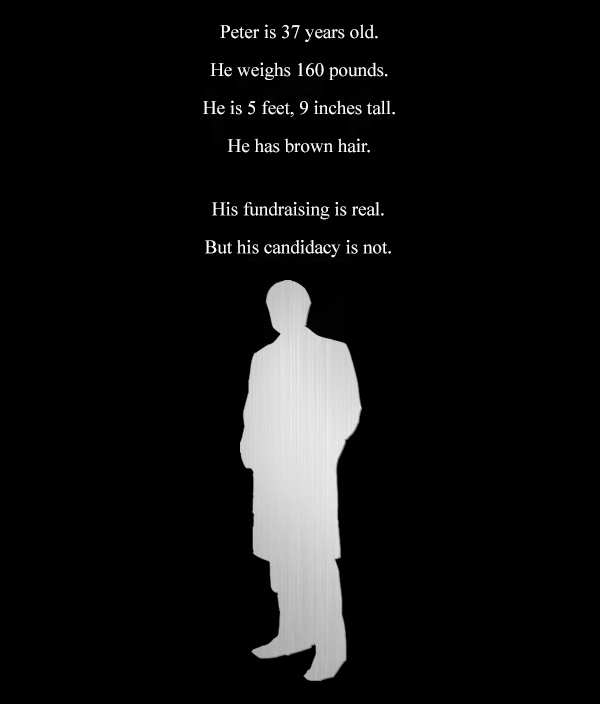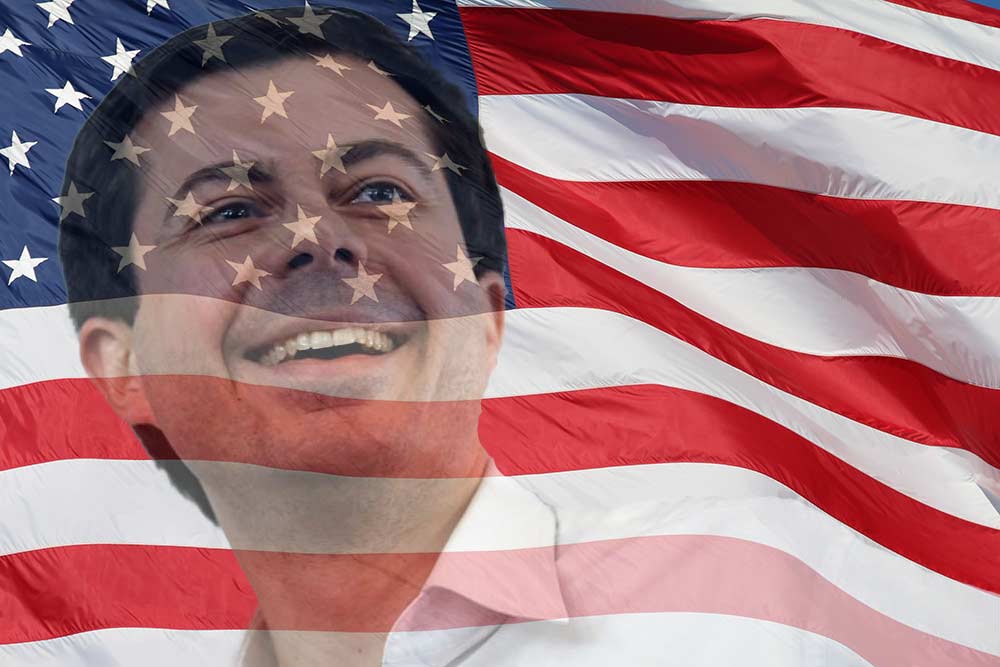Pete Buttigieg has been a captivating candidate for many. I had been impressed with him early on, and thought that he gave a top-3 performance during the first debate. His fundraising also signals that he has incredible potential as a candidate. According to Federal Election Commission filings, Buttigieg raised more money than any other candidate between March 1st and June 30th of 2019, surpassing even frontrunners Joe Biden, Bernie Sanders, and Elizabeth Warren.
| Candidate | Q2 Funds Raised | Cash on Hand |
|---|---|---|
| Pete Buttigieg | $24,800,000 | $22,700,000 |
| Bernie Sanders | $24,000,000 | $27,300,000 |
| Joe Biden | $21,500,000 | $10,900,000 |
| Elizabeth Warren | $19,000,000 | $19,800,000 |
| Kamala Harris | $12,000,000 | $13,300,000 |
| Cory Booker | $4,500,000 | $5,400,000 |
| Amy Klobuchar | $3,870,000 | $6,700,000 |
| Beto O'Rourke | $3,600,000 | $5,200,000 |
| Michael Bennet | $3,500,000 | $2,200,000 |
| Jay Inslee | $3,000,000 | $1,200,000 |
| Julian Castro | $2,800,000 | $1,100,000 |
| Andrew Yang | $2,800,000 | $1,100,000 |
America’s most beloved small-town mayor is rolling in cash, and he’s set to blast off into the top tier of Democratic candidates at any moment, right? Well… not really. The reality is that his candidacy is hanging by a thread.

Why yes, an A.I. reference is probably the most random allusion imaginable.
Buttigieg has been profoundly weak with minority voters. This is, to some degree, his own fault.
It’s been widely reported that Buttigieg has thus far performed terribly with minority voters, particularly African-Americans. This hasn’t been helped by the fact that black members of the South Bend, Indiana community that Buttigieg is mayor of have been furious with him in the wake of a white South Bend officer killing a black man under questionable circumstances, with his body camera disabled.
But this was only the latest in a series of failures which the African-American community has taken Buttigieg to task for:
- In 2012, three months after taking office, Buttigieg fired Darryl Boykins, the first black police chief of South Bend. Boykins had recorded white officers making racist remarks. The FBI had been investigating Boykins for having made the recordings under improper circumstances.
- Buttigieg stated that he couldn’t fire officers who had a history of racist actions.
- In 2014, during Buttigieg’s first term as mayor, more than 10% of South Bend’s police officers were black. In 2018, 5% were black. 26% of South Bend’s population is black.
All of this has come back to haunt Buttigieg in recent weeks. In June, Buttigieg went home to try and patch up relations with angry members of community by holding a town hall in South Bend. It came perilously close to derailing entirely, with many black attendees voicing their outrage.
During the first debate, Buttigieg was asked about his inability to diversify South Bend’s police force. Eric Swalwell, who dropped out after the debate, took the opportunity to take a potshot at Buttigieg and put him in the crosshairs.
In recent weeks, he has discovered his inner wokeness, working overtime to try and gain traction with minority voters. In a recent fundraising email, he stated that he would use his “privilege of whiteness” to advance black causes, name-dropping Seneca Falls and Frederick Douglass.
But polls in recent weeks have indicated that Buttigieg continues to be rather weak with non-white voters.

Poll from CNN/SSRS post-debate.
If, as seems possible, Buttigieg’s campaign fails before the primaries truly begin, it would be easy to blame it on a lack of support from black voters.
But the truth of the matter is, Buttigieg is doing poorly even in states that are largely white.
The presidential primary system has long been criticized for its long-time tradition of giving Iowa and New Hampshire prime spots early in the primary race—or at the absolute beginning of it, as will be the case in 2020—due to their lack of diversity. In 2017, Iowa was estimated to be 90.6% white, while New Hampshire’s population was estimated to be a mere 90% white in mid-2018. In comparison, the United States as a whole was estimated to be 76.5% white in 2018.
If, as the logic implies, Buttigieg fares well with white voters, he should be doing pretty well in the early states and giving himself a great chance of slingshotting up in the polls once Caucasian-heavy Iowa and New Hampshire have their say in the Democratic primary. But, that’s not what the polls say.
| State | Primary Date | Poll % | Rank | White % |
|---|---|---|---|---|
| Iowa | 02/03 | 12% | 5th | 90.6% |
| N.H. | 02/11 | 10.8% | 5th | 90% |
| Nevada | 02/22 | 9.3% | 4th | 68.1% |
| S. Carolina | 02/29 | 4.3% | 5th | 68.5% |
| California | 03/03 | 6.3% | 5th | 72.1% |
| Colorado | 03/03 | 7% | 5th | 87.1% |
| Texas | 03/03 | 3.3% | 6th | 78.8% |
The poll numbers are averages of the last three to four polls in each state, and the rankings are based on my personal poll tracking. Those numbers are, to be frank, extremely grim. When fourth place is the zenith of your polling, things ain’t looking to good.
If you happen to be a… ahem, Buttigieg-bro, you might be tempted to say, “Well, slow and steady wins the race. Pete can pick up steam and win the long-game.” But history would suggest that you are hilariously wrong.
If he performs as polls indicate through the month of February, that’s more than enough to put all the nails in Buttigieg’s coffin necessary to keep the door firmly closed. Actually, Iowa and New Hampshire alone would be sufficient. Since the modern Democratic primary kicked off in 1972, no presidential nominee has ever placed worst than third in Iowa or New Hampshire. And George McGovern, back in 1972, was the only nominee to not win at least one of those two states. Doing worse than that is a death sentence. Even Jeb Bush, who was probably the most well-funded Republican candidate in 2016, shut down his campaign after placing 4th in South Carolina, less than a month after the primaries started.
I recently compiled all available data from the 2004, 2008, and 2016 Democratic primaries, and developed mathematical equations to project how many delegates presidential candidates would win from each state based upon available polling data. When I projected the outcomes of the first four states in the 2020 primary season (Iowa, New Hampshire, Nevada, and South Carolina), the total delegate count was:
- Biden: 71 Delegates
- Sanders: 32 Delegates
- Warren: 23 Delegates
- Harris: 22 Delegates
- Buttigieg: 7 Delegates
Given the current polling, Buttigieg wins a whopping 7 delegates. (And I think this is a slightly generous estimate. Under the previous version of my model, he got 0 delegates. I think that was too pessimistic, but not by much.) That leaves him with an incredible amount of ground to make up in a diverse electorate. And this is why—even if he’s currently swimming backstrokes in a pile of money, a la Scrooge McDuck, having raised more money than anybody in the second quarter of 2019 and having more money in the bank than anyone but Bernie Sanders—I think that Pete Buttigieg’s campaign is living on borrowed time. Okay, well, yeah… and a s***load of cash.
Update on November 6th, 2019:
*looks at Iowa polls*
